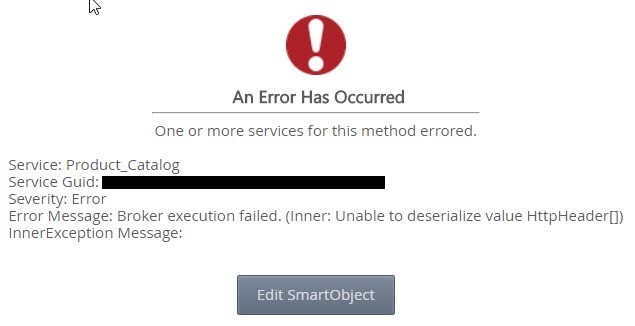I'm working on creating a REST service instance to connect to my company's Product Catalog. I successfully created one, but its SmartObjects don't return any data and throw the attached error, saying, "Unable to deserialize value httpheader."
I've found information about how to format a Authorization token in an httpheader, but I can't seem to find any information about how a product-subscription-key should be formatted.
I've also found informatiom about how to create the httpheader for a WCF Endpoint serice, but not for REST.
Any insight into this would be appreciated!


